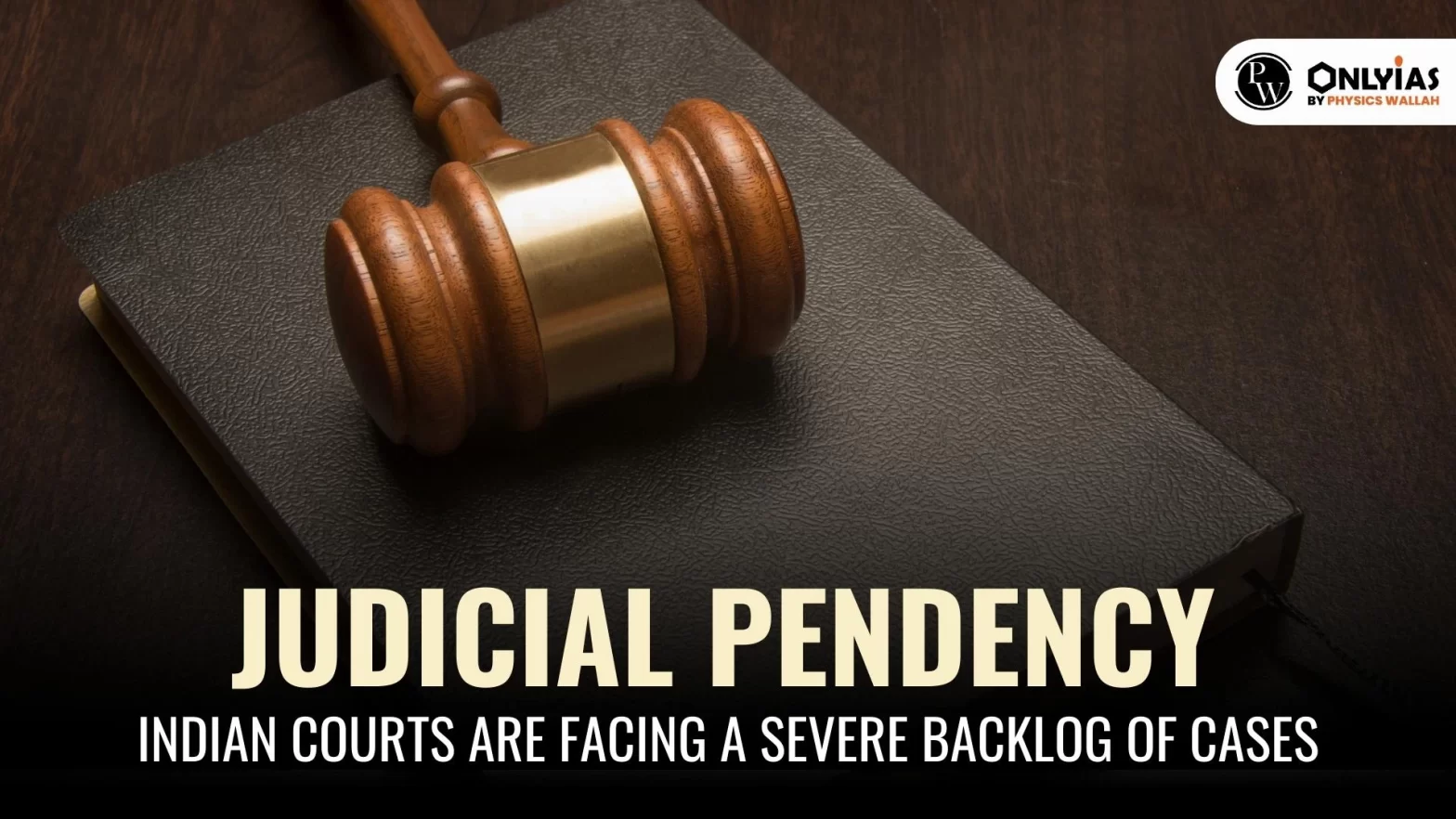Context:
- This article is based on an Editorial “Deferrals cost court, litigant time, money” which was published in the Hindustan Times. The Indian courts are facing a severe backlog of cases, leading to prolonged litigation for the parties involved and a loss of faith in the judiciary system.
- Examining the reasons behind this backlog can shed light on potential solutions to this issue.
| Relevancy for Prelims: Judiciary System.
Relevancy for Mains: Reason for high judicial pendency of cases in the Judiciary, its associated challenges, and steps that need to be taken. |
What are the factors contributing to judicial pendency?
- Lack of Time-Frame: The absence of specific time-frames for case disposal leads to prolonged litigation, hampering timely resolution.
- Shortage of Judges: The high courts are grappling with a large number of cases due to a shortage of judges, impacting the timely delivery of justice.
- Inefficient Case Management: Multiple hearings being scheduled on the same day due to poor case management results in further delays in resolving cases.
What is the role of various institutions in contributing to judicial pendency?
- Executive & Legislative Delays: The inaction by the executive and legislative deficiencies has contributed significantly to the mounting caseload.
- Judiciary’s Stand: The disposal of pending cases mainly lies within the judiciary’s domain, and it’s our responsibility to expedite the hearing and decision-making process.
- State Machinery Lapses: Negligence from the state machinery’s end is responsible for over 50% of the litigation in courts across the country.
What is the path ahead for resolving judicial pendency?
- Enhancement in Quality of Judges: Improving the quality of judges through recruitment and training can help reduce the burden on the courts and expedite case disposal.
- Efficient Investigation and Prosecution: Investigating agencies and prosecution need to work efficiently to present cases before the courts.
- Updation on Obsolete Laws and Litigation: The legislature should concentrate on removing outdated and redundant laws to reduce excessive and frivolous litigation.
- Check on Delaying Tactics by Advocates: The advocates seeking frequent adjournments for personal convenience prolong the trial process and lead to undue delays in resolving cases.
Conclusion:
Addressing judicial pendency in Indian courts requires a multifaceted approach, including timely case disposal, judicial reforms, institutional cooperation, and legislative measures to streamline the legal process and restore faith in the judiciary.
![]() 8 Nov 2023
8 Nov 2023

